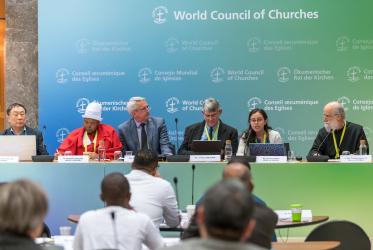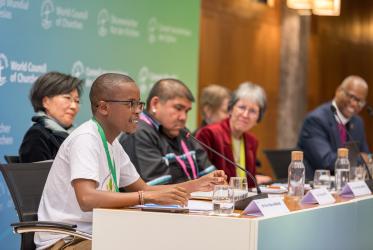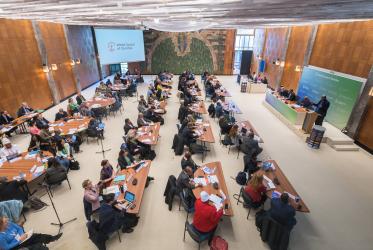Affichage de 41 - 60 de 2619
Que peuvent faire les Églises pour prévenir l’esclavage moderne?
26 Février 2024
What can churches do to prevent modern slavery?
22 Février 2024
Seminar: The Feast of Creation and the Mystery of Creation: Ecumenism, Theology, Liturgy, and Signs of the Times in Dialogue
15 - 16 Mars 2024
Cittadella Laudato Si’ (known as “Cittadella”) – Via degli Ancaiani 3, Assisi
WCC and partners to host seminar in Assisi on Feast of Creation
21 Février 2024
WCC to host discussion on humanitarian needs
21 Février 2024
WCC submits comments on draft UN “Pact for the Future”
12 Février 2024
WCC to share key insights at World Social Forum
09 Février 2024










